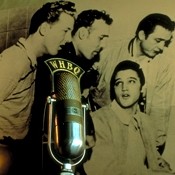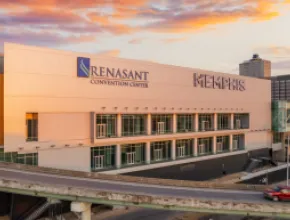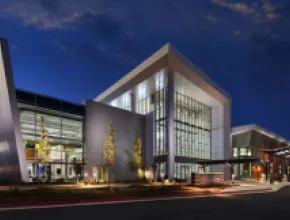Home of the Blues. Birthplace of Rock ’n’ Roll. Memphis, Tenn., is a cradle of American culture, and groups meeting here are blessed with the riches of an astounding musical legacy at prices that would make Jerry Lee Lewis blush.
“Memphis has always been a melting pot, or a crossroads, whether it’s been culture, commerce or civil rights—we’re the capital of the Delta,” says Jimmy Ogle, vice president of operations of Memphis’ Ericson Group. “Memphis, I believe, more than any other part of the country, offers more in the way of 20th century American culture.”
Ogle should know, being a lifelong Memphian and having worked in the local tourism industry for a quarter century.
“It’s also a pretty close-knit place—not a sprawling metropolis,” Ogle says. “Particularly if you’re based in the convention center downtown, everything is within walking distance between the meeting hotels and the attractions downtown.”
But Memphis wasn’t always so traveler-friendly.
“The downtown of the city closed in the 1970s, like many downtowns in the country then,” Ogle says. “The Peabody was completely closed in 1975—it’s the centerpiece, the grand hotel. In 1979 there were more people living in jail in downtown Memphis than residentially. It’s undergone a complete renaissance in the last 20 years.”
While The Peabody, Memphis and its famous parading ducks are once again strutting their refined stuff, the famed two-block national historic district of Beale Street (www.bealestreet.com)—where W.C. Handy composed what many consider the first published blues song, what would become The Memphis Blues, in 1909—is still all down-home boogie, but with a tourist-friendly, 21st century polish.
Beale Street Entertainment District nightclubs such as B.B. King’s Blues Club, the Hard Rock Cafe, Rum Boogie Cafe, and Alfred’s, to name a few, are must-visit venues for the best local music.
“It’s chock-loaded full of clubs—it’s kind of our equivalent of [New Orleans’] Bourbon Street, a melting pot for all segments of the community,” Ogle says.
On a somber note, Memphis is also where the watershed moment of the civil rights movement, the April 4, 1968 assassination of Dr. Martin Luther King Jr. at the Lorraine Motel, took place. To honor Dr. King, the National Civil Rights Museum (www.civilrightsmuseum.org) was built around the former motel, opening in 1991.
The museum debuted its $11 million Exploring the Legacy expansion in 2002, which added 12,800 square feet of exhibition space and answers three questions: What happened after Dr. King’s death, did the Movement die in Memphis, and what is the legacy of the Movement nationally and internationally?
Ogle says a typical group traveling to Memphis will want to ride a riverboat, go to Graceland or Sun Studio, visit the National Civil Rights Museum, or go to the Memphis Zoo, which now has four sets of pandas and is currently undergoing an expansion.
Besides all of the accolades, Ogle believes local hotels, facilities and the Memphis CVB (www.memphistravel.com) just plain make it easy to do group business, making it a popular destination.
“One thing that makes it good for the meeting planner is the infrastructure that’s in place,” he says. “The CVB really works hand in hand with the hotel people to put the right packages together. I think Memphis gets a lot of business based on referrals and return business.”







